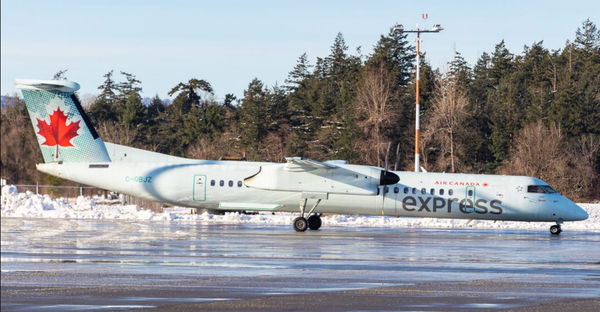Singapore is positioning itself as a leader in sustainable aviation by announcing plans to mandate the use of sustainable aviation fuel (SAF) for all outbound flights from the country starting in 2026. This initiative, unveiled by Transport Minister Chee Hong Tat at the Changi Aviation Summit on the eve of the Singapore Airshow, underscores the city-state's commitment to environmental sustainability and aligns with global efforts within the aviation industry to transition to greener fuel alternatives.

Under Singapore's ambitious plan, the goal is to achieve a 1% SAF target by 2026, with further aspirations to escalate this figure to 3-5% by 2030. However, the realization of these targets is contingent upon various factors, including global developments, advancements in SAF technology, and the broader availability and adoption of SAF across the aviation sector.
In collaboration with industry stakeholders, the Civil Aviation Authority of Singapore (CAAS) meticulously crafted this roadmap for SAF adoption. According to CAAS, using SAF is a critical pathway for decarbonizing aviation. It is anticipated to contribute around 65% to the carbon emission reduction required to achieve net zero by 2050. This assertion underscores the pivotal role that SAF plays in mitigating the environmental impact of air travel and advancing sustainability goals within the aviation industry.

Sustainable aviation fuel can be produced through synthetic processes or derived from biological materials, such as used cooking oil or wood chips. Currently, SAF accounts for a mere 0.2% of the jet fuel market, but industry projections indicate a significant surge in adoption, with expectations that SAF will constitute 65% of aviation fuel by 2050.
However, realizing this transition poses challenges, including substantial capital investment estimated at $1.45 trillion to $3.2 trillion and addressing issues related to supply chain logistics and pricing disparities between SAF and traditional jet fuel. One of the primary hurdles in scaling up SAF adoption is the uncertainty producers face regarding the demand for their products.

On the other hand, airlines contend that there is insufficient supply of SAF at a competitive price point. Currently, the cost of SAF is up to five times higher than that of conventional jet fuel, posing financial challenges for airlines seeking to integrate SAF into their operations.
CAAS plans to introduce a SAF levy to purchase sustainable aviation fuel to address these challenges and provide certainty to airlines and travelers. This levy, set at a fixed quantum, will be based on the SAF target and projected price at implementation. Factors such as travel distance and class of service will influence the levy, with passengers in premium classes expected to bear higher levies than economy class travelers.

For instance, introducing a 1% SAF uplift levy in 2026 could translate to an estimated increase in ticket prices for economy class passengers on direct flights from Singapore to destinations like Bangkok, Tokyo, and London. The precise impact on ticket prices will vary depending on factors such as route distance and class of service, with premium class passengers likely to incur higher levies.
Singapore's proactive stance on sustainable aviation fuel reflects its commitment to environmental stewardship. It underscores the importance of collaborative efforts between governments, industry stakeholders, and consumers in addressing the climate impact of air travel. As the aviation sector continues to transition towards greener and more sustainable practices, initiatives like Singapore's SAF mandate catalyze driving meaningful change and fostering a more sustainable future for aviation.
KLM Cancels 92% of Amsterdam Flights in Historic Winter Storm Crisis » Air Canada Doubles Down on Regional Strength with Major PAL Airlines Expansion » Pivot Airlines Rebrands to Great North Airlines to Spearhead Canada’s Regional Revival »
Comments (0)
Add Your Comment
SHARE
TAGS
NEWS Singapore Sustainable Aviation SAF Sustainable Aviation Fuel Sustainability Singapore Airshow FutureRECENTLY PUBLISHED
 NTSB Scrutinizes FAA NOTAM Logic Following Fatal MD 530F Canyon Crash
One week after a private helicopter plummeted into the rugged depths of Telegraph Canyon, the aviation community is reeling not only from the loss of four lives but from the glaring systemic failures it has unearthed.
NEWS
READ MORE »
NTSB Scrutinizes FAA NOTAM Logic Following Fatal MD 530F Canyon Crash
One week after a private helicopter plummeted into the rugged depths of Telegraph Canyon, the aviation community is reeling not only from the loss of four lives but from the glaring systemic failures it has unearthed.
NEWS
READ MORE »
 Air Canada Doubles Down on Regional Strength with Major PAL Airlines Expansion
In a strategic move to fortify its presence in Eastern Canada, Air Canada has officially announced its intent to significantly expand and extend its commercial partnership with PAL Airlines. As of January 8, 2026, the two carriers have signed a Letter of Intent (LOI) that not only secures regional connectivity for the next decade but also introduces a substantial fleet expansion to meet rising demand in Québec and the Maritimes.
NEWS
READ MORE »
Air Canada Doubles Down on Regional Strength with Major PAL Airlines Expansion
In a strategic move to fortify its presence in Eastern Canada, Air Canada has officially announced its intent to significantly expand and extend its commercial partnership with PAL Airlines. As of January 8, 2026, the two carriers have signed a Letter of Intent (LOI) that not only secures regional connectivity for the next decade but also introduces a substantial fleet expansion to meet rising demand in Québec and the Maritimes.
NEWS
READ MORE »
 Flydubai, Turkish, and Pegasus Suspend Flights Amid Escalating Unrest and Digital Blackout
Major Middle Eastern and Turkish carriers have abruptly suspended flight operations to the Islamic Republic of Iran today, as a nationwide internet blackout and escalating anti-government protests create a "high-risk" environment for international civil aviation.
NEWS
READ MORE »
Flydubai, Turkish, and Pegasus Suspend Flights Amid Escalating Unrest and Digital Blackout
Major Middle Eastern and Turkish carriers have abruptly suspended flight operations to the Islamic Republic of Iran today, as a nationwide internet blackout and escalating anti-government protests create a "high-risk" environment for international civil aviation.
NEWS
READ MORE »



